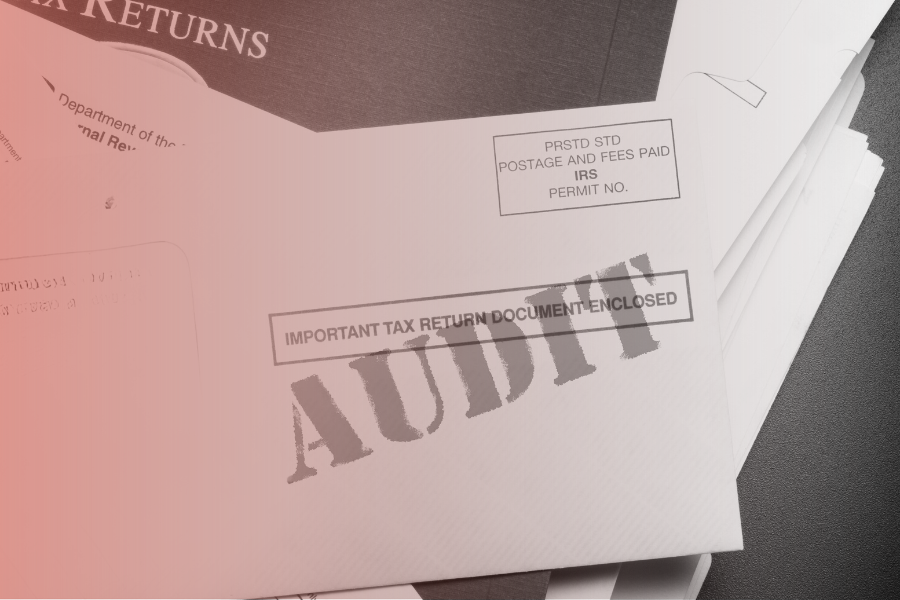How Reporting Foreign Inheritance to IRS Works: Trick Insights and Standards for Tax Reporting
Navigating the intricacies of reporting foreign inheritance to the IRS can be difficult. There specify thresholds and types that individuals need to understand to ensure conformity. For example, inheritances exceeding $100,000 from non-resident aliens require particular attention. Failing to adhere to these guidelines may cause charges. Recognizing the subtleties of tax implications and required paperwork is important. The complying with areas will detail essential insights and guidelines for reliable tax obligation coverage.
Recognizing Foreign Inheritance and Its Tax Obligation Effects
It is important for them to understand the associated tax effects when people get an inheritance from abroad. In the United States, inherited assets are usually exempt to earnings tax, but the estate where the inheritance comes might have certain tax obligations. Foreign inheritances can make complex issues, as different countries have varying laws pertaining to inheritance tax. Individuals should be aware that while they might not owe taxes on the inheritance itself, they may be accountable for reporting the worth of the foreign asset to the Irs (INTERNAL REVENUE SERVICE) Furthermore, currency exchange prices and appraisal methods can influence the reported worth of the inheritance. Understanding these aspects is vital to avoid unanticipated tax responsibilities. Seeking assistance from a tax professional knowledgeable in global inheritance regulations can supply quality and guarantee conformity with both united state and foreign tax obligation needs.

Coverage Requirements for Inherited Foreign Properties
The reporting requirements for acquired foreign assets entail certain thresholds and limits that taxpayers have to comprehend. Compliance with IRS laws requires the suitable tax return and awareness of possible charges for failing to report. Comprehending these elements is essential for people receiving international inheritances to avoid lawful problems.
Coverage Thresholds and Limits
While going across the complexities of acquired foreign possessions, understanding the reporting limitations and thresholds set by the IRS is essential for compliance. The IRS requireds that U. foreign gift tax reporting requirements.S. taxpayers report foreign inheritances surpassing $100,000 from non-resident aliens or foreign estates. This restriction applies to the overall worth of the inheritance, encompassing all possessions obtained, such as cash, genuine estate, and financial investments. Additionally, any type of international financial accounts totaling over $10,000 need to be reported on the Foreign Financial Institution Account Report (FBAR) Failure to stick to these limits can result in considerable charges. It is essential for taxpayers to precisely examine the worth of acquired foreign assets to ensure prompt and certified reporting to the IRS
Tax Forms Introduction

Charges for Non-Compliance
Failure to follow coverage needs for acquired international properties can cause substantial fines for united state taxpayers. The IRS enforces strict policies concerning the disclosure of foreign inheritances, and failings can cause penalties that are often substantial. Taxpayers may deal with a fine of up to $10,000 for falling short to submit Kind 3520, which reports international presents and inheritances exceeding $100,000. Additionally, proceeded non-compliance can rise fines, possibly rising to 35% of the worth of the acquired property. In addition, failing to report can also set off much more serious effects, including criminal fees for willful disregard. Taxpayers need to remain alert to avoid these effects by making sure prompt and accurate coverage of foreign inheritances.
Key Types and Documentation Needed
When a specific gets a foreign inheritance, it is important to recognize the key forms and documents needed for conformity with IRS laws. The main type needed is the IRS Kind 3520, which must be filed to report the receipt of the foreign inheritance. This type supplies thorough information regarding the inheritance, including the identity of the international decedent and the value of the inherited properties.
Additionally, if the acquired residential property includes foreign checking account or other monetary properties, the individual may require to file the Foreign Bank Account Record (FBAR), FinCEN Kind 114, if the total value goes beyond $10,000. Proper paperwork, such as the will or estate documents from the foreign territory, need to also be collected to corroborate the inheritance case. Keeping complete documents of all interactions and purchases associated with the inheritance is important for precise coverage and conformity with IRS needs.
Tax Treaties and Their Influence on Estate Tax

Comprehending the effects of tax obligation treaties is vital for individuals obtaining foreign inheritances, as these agreements can considerably influence the tax obligation commitments associated with acquired properties. IRS Form 3520 inheritance. Tax treaties between countries frequently offer particular guidelines on how inheritances are taxed, which can cause minimized tax obligation obligations this website or exemptions. For instance, a treaty may specify that particular sorts of inheritances are not subject to tax in the recipient's country, or it may allow for credits versus tax obligations paid abroad
Individuals must acquaint themselves with the certain arrangements of relevant treaties, as they can vary substantially. This understanding helps assure compliance with tax obligation policies while making the most of possible benefits. Additionally, comprehending how treaties connect with domestic regulations is vital to accurately report international inheritances to the IRS. Consequently, seeking advice from a tax expert fluent in worldwide tax obligation law might be recommended to browse these complex laws effectively.
Typical Errors to Stay Clear Of When Coverage Inheritance
Although many individuals believe they can quickly browse the intricacies of reporting international inheritances, they often overlook vital information that can cause substantial mistakes. One typical blunder is failing to report the inheritance in the appropriate tax year, which can cause fines. Additionally, some individuals disregard to transform international assets into united state bucks at the ideal currency exchange rate, subsequently misstating their worth. One more regular oversight includes misinterpreting the reporting thresholds; have a peek at this website individuals might presume they do not need to report if the inheritance is below a certain quantity, which is imprecise. Additionally, misclassifying the kind of inheritance-- such as treating a gift as an inheritance-- can complicate reporting commitments. People often stop working to maintain extensive documentation, which is crucial for avoiding and validating insurance claims audits. Recognition of these mistakes can greatly boost compliance and minimize the risk of economic repercussions.
Looking For Professional Help for Facility Circumstances
Steering the complexities of reporting international inheritances can be intimidating, particularly for those with intricate monetary scenarios. Individuals dealing with concerns such as multiple international properties, varying tax effects across territories, or detailed household characteristics may take advantage of expert assistance. Tax experts specializing in international tax regulation can provide vital understandings into the subtleties of IRS regulations, making sure conformity while minimizing possible liabilities.
Engaging a state-licensed accountant (CPA) or tax attorney with experience in foreign inheritance can assist make clear coverage needs, identify appropriate exceptions, and plan ideal tax obligation methods. Additionally, they can help in finishing essential kinds, such as Form 3520, and handling any type of extra disclosure needs.
Inevitably, seeking specialist assistance can ease stress and anxiety and boost understanding, allowing people to concentrate on the emotional aspects of inheritance as opposed to becoming overwhelmed by tax obligation intricacies. This aggressive strategy can cause a lot more positive results in the future.
Regularly Asked Concerns
Do I Need to Report Foreign Inheritance if I'm Not a united state Resident?
Non-U.S. citizens usually do not require to report foreign inheritances to the IRS unless they have specific links to U.S. tax regulations. Nevertheless, it's recommended to seek advice from a tax specialist to clear up individual conditions.
Are There Charges for Failing to Record Foreign Inheritance?
Yes, there are penalties for falling short to report foreign inheritance. People may encounter considerable fines, and the IRS might impose extra consequences for non-compliance, possibly impacting future tax obligation filings and financial condition.
Can I Subtract Costs Associated With Managing Inherited Foreign Properties?
Expenses connected to managing inherited international assets are normally not deductible for tax obligation objectives. However, people need to speak with a tax obligation professional for assistance customized to their specific situations and possible exceptions that may use.
How Does Foreign Currency Influence the Worth of My Inheritance Record?
Foreign money fluctuations can significantly impact the reported value of an inheritance. When transforming to U.S - foreign gift tax reporting requirements. bucks, the exchange rate at the time of inheritance and reporting establishes the final reported worth for tax obligation functions
What Takes place if My International Inheritance Is Held in a Count on?
It might make complex coverage demands if an international inheritance is held in a depend on. The trust fund's framework and tax implications need to be examined, as beneficiaries could face differing tax obligation commitments based upon territory and count on type.
The IRS requireds that United state taxpayers report international inheritances going beyond $100,000 from international estates or non-resident aliens. In addition, any foreign monetary accounts amounting to over $10,000 should be reported on the Foreign Bank Account Record (FBAR) Individuals acquiring international assets should typically report these on Kind 8938 (Statement of Specified Foreign Financial Possessions), if the total worth surpasses certain limits. Depending on the nature of the inheritance, various other forms such as Kind 3520 (Annual Return To Report Purchases With Foreign Trusts and Receipt of Particular International Gifts) might also be necessary. In addition, if the inherited home includes international bank accounts or various other financial check it out properties, the individual might need to submit the Foreign Bank Account Record (FBAR), FinCEN Form 114, if the complete value goes beyond $10,000.